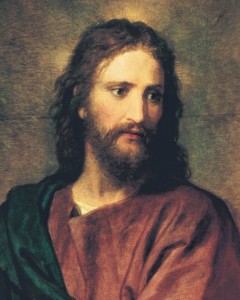A few years ago I was watching a webcast of a panel discussion. The moderator and one-half of the participants were experts in a certain field, plus there was a cabinet-level government official as the keynote speaker. The other half of the panel, however, included producers and actors who starred in a television drama series about the same field.
 It was quite a hoot. The contrast between the two halves of the panel was startling. The real-life experts could give crisp and concise answers to the questions. On the other hand, the Television-Land half of the panel gave short answers about the character they played, or their own personal lives. But unlike the characters they portrayed in the TV show, they had no technical knowledge or insight into the field.
It was quite a hoot. The contrast between the two halves of the panel was startling. The real-life experts could give crisp and concise answers to the questions. On the other hand, the Television-Land half of the panel gave short answers about the character they played, or their own personal lives. But unlike the characters they portrayed in the TV show, they had no technical knowledge or insight into the field.
The lesson is this: the real-life experts were knowledgeable in their field—their life was their script; however, the actors were working without a script. The illusion I had from the show—the “willful suspension of disbelief” as it is sometimes called—was shattered. It reminded me of the ancient Greek thespians who wore the bulky masks when they acted, or the first time you see a character from a science-fiction movie out of costume. From what I understand David Prowse is a nice man—until he puts on the Darth Vader mask. Then it is all iron-fisted business.
In writing this, I am not trying to besmear actors. I am from California, so I went to school with aspiring actors. Actors have also held positions of high office. Ronald Reagan was both governor and president. Arnold Schwarzenegger is currently a governor. Both Sonny Bono and Clint Eastwood have been mayors. And Shirley Temple has been a US ambassador twice.
Also, the series in question has won several Emmys and Golden Globe awards, so the people are tops. I give them due credit for the technical and artistic aspects of the show.
What I am saying, however, is that when people—be it actors or everyday people—operate without a script, mistakes can happen.
I think that is one reason why Jesus Christ goes by the title of “the author … of our faith.” (Hebrews 12:2). He is the author of the script we are to follow. He is the “Word” (John 1:1), or the words that make up this script. He is “the Alpha and the Omega” (Revelation 1:8)—which is like saying He is the A and the Z, as the God’s Word Translation of the Bible renders this verse. So He is the letters that make up the words of the script. He is everything we are supposed to do and to be, to the smallest detail.
These small details can be big things. An ancient prophet wrote:
“By small and simple things are great things brought to pass.” (Alma 37:6)
And a modern apostle wrote:
“God’s shaping personalness is felt in the details of our lives.” (Neal A. Maxwell, “Called To Serve”)
The point is that we have a plan for our lives. That plan is Christ.
Howard W. Hunter, the fourteenth president of the Mormon Church said:
“Several months ago [in 1994] an invitation was given to members of the Church as we strive to keep the commandments of God and receive the full measure of his blessings. The invitation was for all members of the Church to live with ever more attention to the life and example of the Lord Jesus Christ, emulating the love and hope and compassion he displayed. … ”
“We must know Christ better than we know him; we must remember him more often than we remember him; we must serve him more valiantly than we serve him. Then will we drink water springing up unto eternal life and will eat the bread of life.”
“What manner of men and women ought we to be? Even as he is.” (Howard W. Hunter, “He Invites Us to Follow Him,” Ensign, Sep 1994, 2)
Mormonism is about Christ. That is why Mormons have such a reverence for Joseph Smith. We see him as a revealer of Christ, or in other words, a restorer of this script we are to follow.
Joseph Smith wrote:
“The fundamental principles of our religion are the testimony of the Apostles and Prophets, concerning Jesus Christ, that He died, was buried, and rose again the third day, and ascended into heaven; and all other things which pertain to our religion are only appendages to it.” (“Chapter 3: Jesus Christ, the Divine Redeemer of the World,” Teachings of Presidents of the Church: Joseph Smith, [2007], 45–56.)
Following Christ is easy. The first step is studying the script. Our script is the scriptures. In them we see both the historical data about Christ’s life, and also the doctrine, principles, and tenants of what Jesus Christ taught. The scriptures give us both the “what” and the “why” of Christ.
The next part is taking these principles—these ideas from God—and then incorporating them into our life. Actors practice and have rehearsals. Our life is one long dress rehearsal. We are practicing how to be like Christ so that in the next life we can be ready for the Great Opening Day.
It’s hard, but it’s worth it. For centuries now actors have been memorizing pages and blocks of Shakespearian text. Our call as Christians is to do the same. But we are not memorizing a text; we are memorizing Christ.
About kendalbhunter
Twitter •

